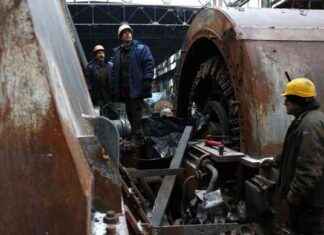After a short illness, Halvorsen passed away Wednesday in Utah. He was surrounded by his family, James Stewart, director of the Gail S. Halvorsen Aviation Education Foundation said Thursday.
In Berlin, Halvorsen was loved and revered. He last visited the city in 2019 when it celebrated the 70th anniversary the Soviets lifted the post-World War II blockade which cut off supplies to West Berlin. There was a huge party at the Tempelhof Airport in the German capital.
Franziska Giffey, Berlin Mayor, stated that Halvorsen’s deeply personal act will never be forgotten.
Utah Gov. Spencer Cox also honored Halvorsen who was born in Salt Lake City, but grew up on farms prior to obtaining his pilot’s licence.
He said, “I know he is up there, giving out candy behind some pearly gates,”
Following the attack on Pearl Harbor in 1941, Halvorsen was trained as a fighter pilot. He also served as a transport pilot in South Atlantic during World War II. Later, he flew food to West Berlin as part the airlift.
According to the foundation’s website account, Halvorsen expressed mixed feelings about helping the United States’ former enemy following the loss of friends during World War II.
After meeting children behind a Templehof fence, his attitude changed and he launched a new mission.
He gave them two pieces of his gum, split in half. It was touching to see the children who had the gum share pieces of the wrapper and the other children who smelled it. Halvorsen recalls that he promised to give enough gum to all of them as he flew the next day, waving his wings as he flew above the airport.
He began to do this regularly using his own candy ration and handkerchiefs to transport them to the ground. Soon, other pilots and crews joined the “Operation Little Vittles” initiative.
A story by the Associated Press titled “Lollipop Bomber Flys Over Berlin” was published. This triggered a flood of handkerchief and candy donations.
In an ambitious plan to supply West Berlin with food and water after World War II, the Soviets, one of the four occupying power of a divided Berlin, blocked the city. This was to force the U.S. and Britain out of the Soviet-occupied eastern Germany enclave.
278,000 flights were flown by Allied pilots to Berlin. They carried approximately 2.3 million tonnes of food, coal, and medicine.
The Soviets finally realized that the blockade was ineffective and lifted their barricades on May 12, 1949. As a precaution, the Soviets could change their minds and continue to airlift for several months.
The memories of American soldiers giving out candy, chewing gum and fresh oranges in Germany are still vivid — especially for those who were born during or shortly after the war.
Many people fondly recall their first taste of candy or fresh fruit in an era when many were forced to sell their family heirlooms or starve during wartime.
Stewart stated that Halvorsen’s efforts in reaching out to Berlin helped to send a message to them that they are not forgotten and will not be abandoned.
He said that despite his initial reservations about the airlift, Halvorsen, a poor child of the Great Depression, found a little bit of himself in the children and formed a connection with them.
Stewart stated, “A simple act of kindness from one person to another can truly change the world.”






